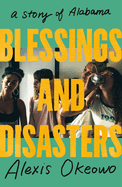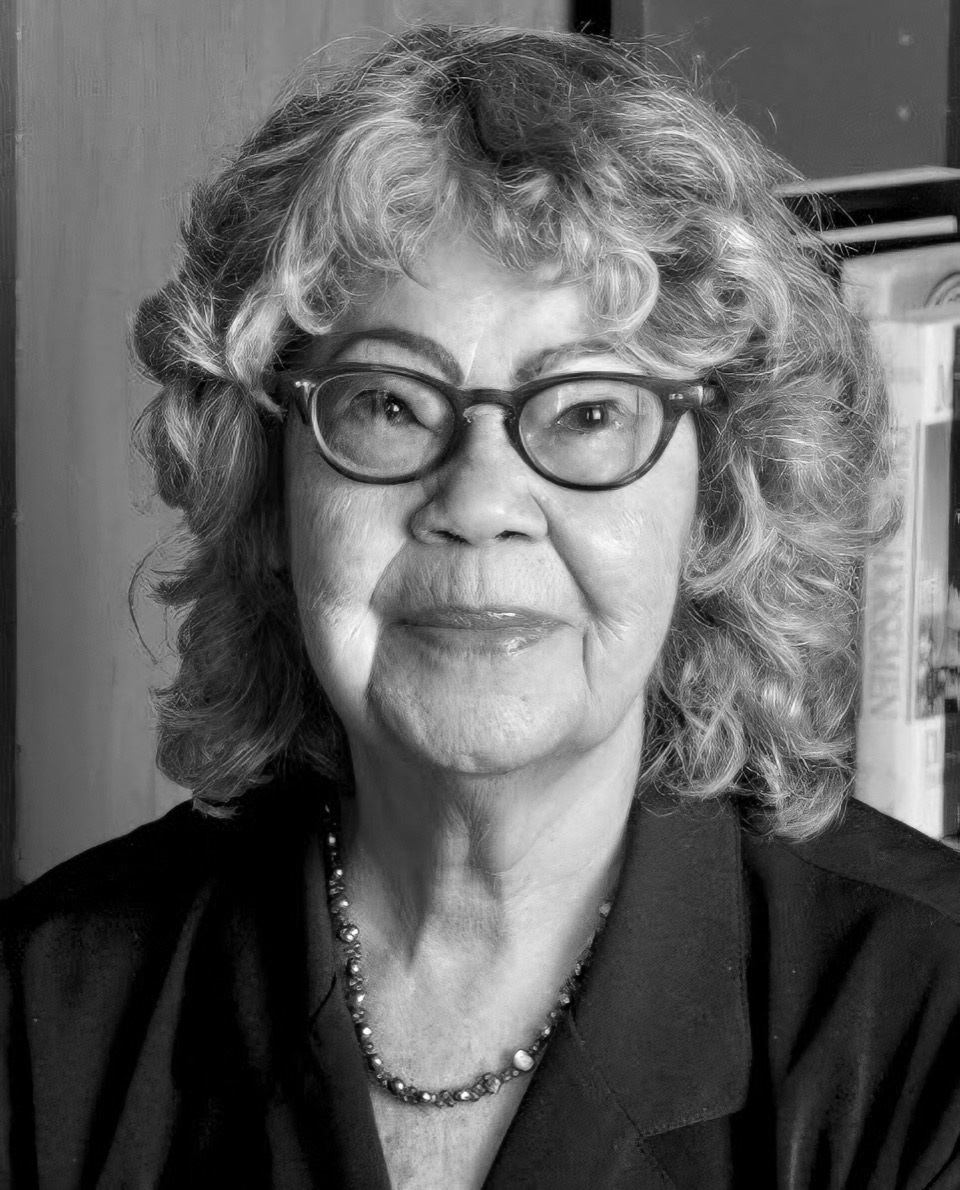 |
| photo: Alex Rice |
Olive Senior is the author of 20 books of fiction, nonfiction, poetry, and children's literature. She was the Poet Laureate of Jamaica from 2021 to 2024, and has received numerous awards and honors, including honorary doctorates from the University of the West Indies (Jamaica) and York University (Canada), Canada's Matt Cohen Award for Lifetime Achievement, the OCM Bocas Prize for Caribbean Literature, and the Commonwealth Writers' Prize. She splits her time between Toronto, Canada, and Kingston, Jamaica. Her new book, the historical novel Paradise Once (Akashic Books, June 3, 2025), brings to life the resiliency of the Indigenous Taíno people in the Caribbean whose culture was virtually destroyed within two generations of their "discovery" by Christopher Columbus.
Handsell readers your book in 25 words or less:
Learn about the Caribbean Taíno, the Indigenous people Columbus met in 1492. Paradise Once captures a world of encounter, genocide, and resistance.
On your nightstand now:
I'm rereading Elmore Leonard's Cuba Libre. I turn to genre fiction for relaxation but also when, from the masters like this, I need to sample perfect storytelling.
Favorite book when you were a child:
Alice's Adventures in Wonderland by Lewis Carroll. Still my favorite. It unconsciously instilled in me, a little country girl from Jamaica, both curiosity and courage to go forth into the unknown.
Your top five authors:
I keep changing over time (and a long life of reading), but fiction always: Charles Dickens, Gabriel García Márquez, Terry Pratchett. Currently: Edwidge Danticat, Bernardine Evaristo. All passionate storytellers with a strong moral compass and engagement with the human condition. For poets, for the same reason, I could add Walt Whitman, Muriel Rukeyser, Pablo Neruda.
Book you've faked reading:
I won't confess to any contemporary author so I'll say John Bunyan's The Pilgrim's Progress.
Book you're an evangelist for:
Eduardo Galeano's Memory of Fire. A genius way to make New World history come alive.
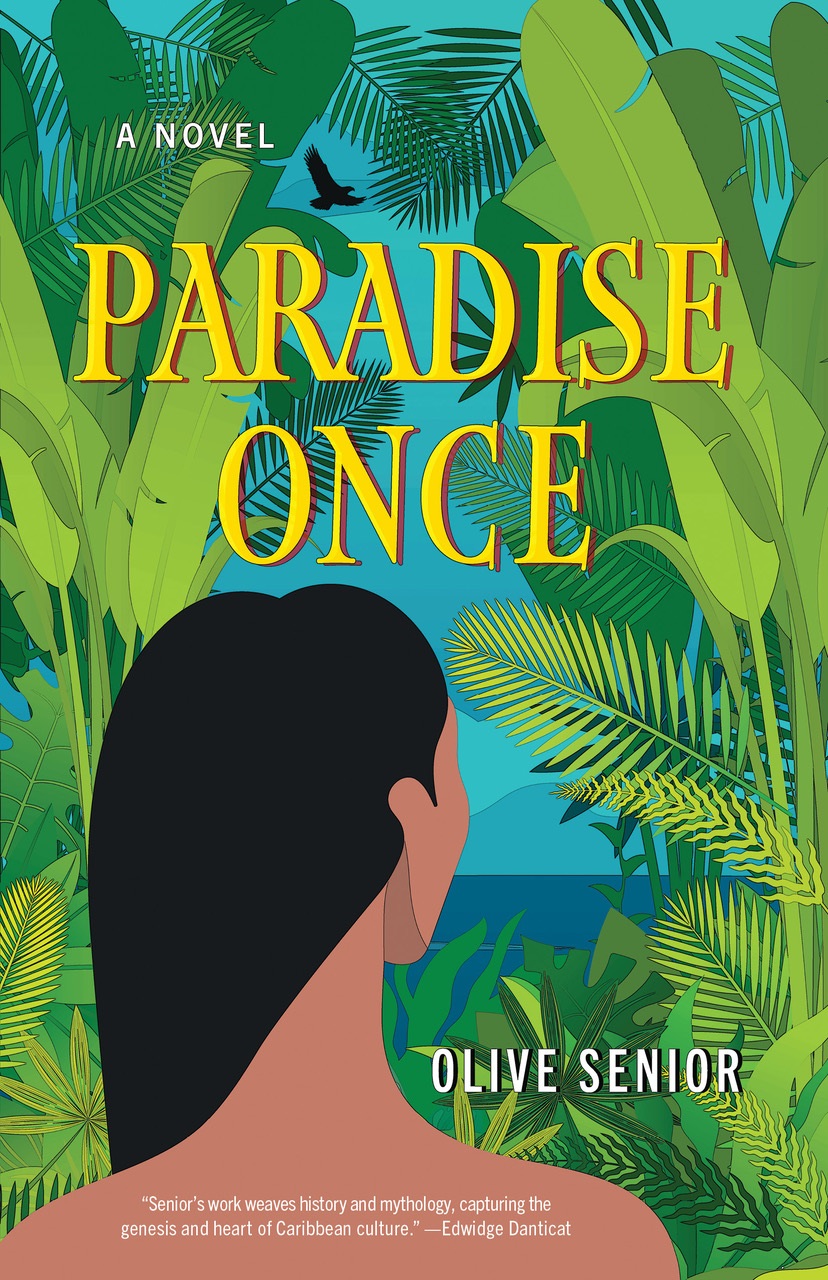 Book you've bought for the cover:
Book you've bought for the cover:
I never have, but I hope someone might buy Paradise Once for its beautiful, evocative cover (and read it, of course).
Book you hid from your parents:
MAD magazine and comics generally as they were believed by all authority figures to lead to brain rot. But I learned so much about writing humor and satire from the early days of MAD. So, "What, me worry?"
Book that changed your life:
Sorry, I am cheating here with three. Other Voices, Other Rooms by Truman Capote was the first book outside of the English literary canon (on which I was fed) where I became conscious of a landscape like my own (palm trees!) and people of color in literature. This was probably the first adult book by an American author that I read, on my own in a little library beside the sea in Montego Bay. As a teenager yearning to write, it made me realize that the world I inhabited could be my subject matter. That world has remained the source of everything I have written since. (I might add that I read this before the upsurge in Caribbean writing or my later exposure to African American literature).
One Hundred Years of Solitude by Gabriel García Márquez swept me off my feet with the sheer exuberance of the storytelling. But it too made me realize how fabulous stories existed not just in storybooks from far-flung lands, but in the very fabric of our everyday Caribbean lives.
Only much later did I realize that the book that did change my life was my own first collection of stories, Summer Lightning, set in rural Jamaica. The fact that it won an international literary prize was the affirmation I needed that my desire to be a writer in a world that did not then support the idea, was the right one.
Favorite line from a book:
Not from fiction or poetry but from seed biologist Carol Baskin. Her description of a seed as "a baby plant, in a box, with its lunch," also perfectly describes a nascent poem as self-contained and ready to sprout, with a little nurturing. Like all seeds. Perfect!
Five books you'll never part with:
Dictionary of Jamaican English by F.G. Cassidy and R.B. Le Page. A book that broke the colonial mirror and showed us ground truth reflected in our own language and cultural practices.
Icanchu's Drum: An Orientation to Meaning in South American Religions by Lawrence E. Sullivan. This has been my bible in trying to understand the worldview of the Taíno (subjects of Paradise Once) but also of the peoples of the Americas pre- and post-Columbus. Our Indigenous ancestors.
Elemental Odes by Pablo Neruda. I hold on to all of Neruda but the Odes are there to remind me always of how poetry can be crafted from the simplest of materials.
Alice's Adventures in Wonderland with the Tenniel illustrations. Forever down the rabbit hole.
Book you most want to read again for the first time:
I'd like to read again for the first time, the early publications by three leading (and very different) Caribbean poets to find the seeds of their future greatness (à la Baskin, above). In a Green Night by Nobel Laureate Derek Walcott, Rights of Passage by Edward Kamau Brathwaite, and Tamarind Season by Lorna Goodison.
Closing thoughts:
I could give different answers to everything on different days. I don't keep a record of what I read, and books and authors flash in and out of my memory. So tomorrow I'll say, why didn't I include... ? Readers might be surprised that my book list is not all fiction or poetry. My creative spirit is greatly nourished by my nonfiction reading.
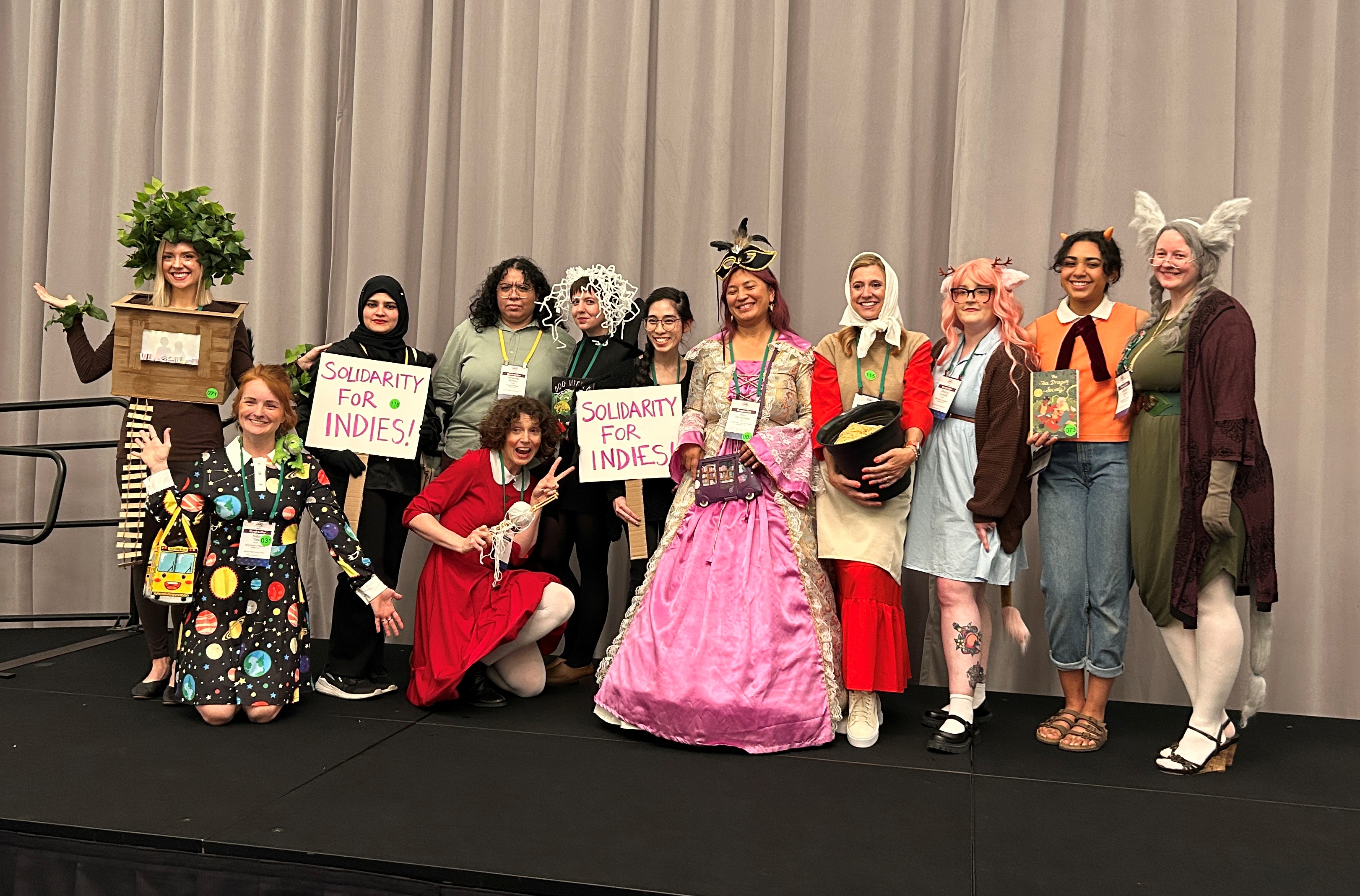
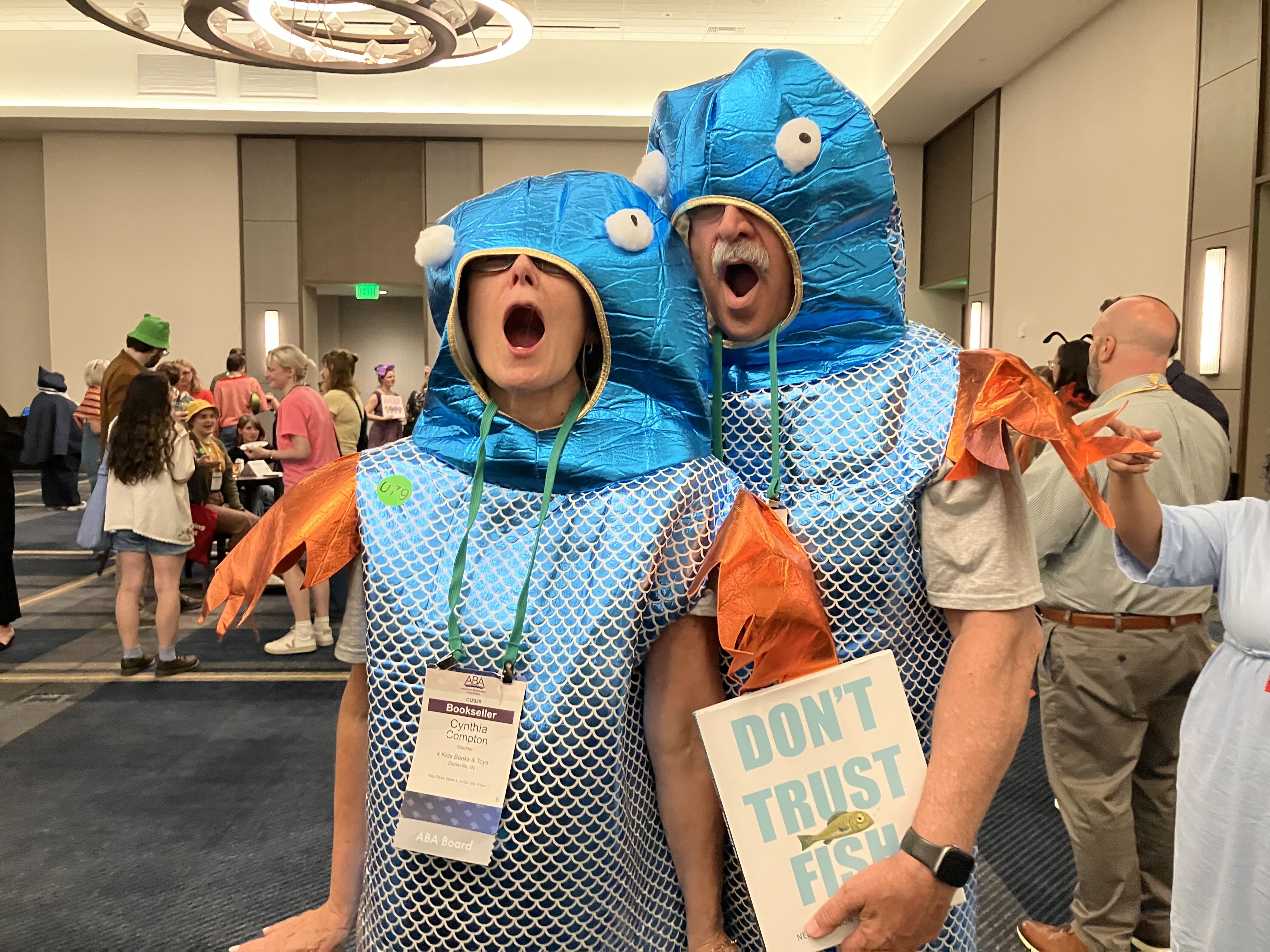 ABA board president Cynthia Compton of 4 Kids Books & Toys in Zionsville, Ind., and MacArthur Books, Carmel, Ind., posed with husband, Stephen Schultz, to remind partygoers it is imperative they Don't Trust Fish (by Neil Sharpson, illus. by Dan Santat).
ABA board president Cynthia Compton of 4 Kids Books & Toys in Zionsville, Ind., and MacArthur Books, Carmel, Ind., posed with husband, Stephen Schultz, to remind partygoers it is imperative they Don't Trust Fish (by Neil Sharpson, illus. by Dan Santat).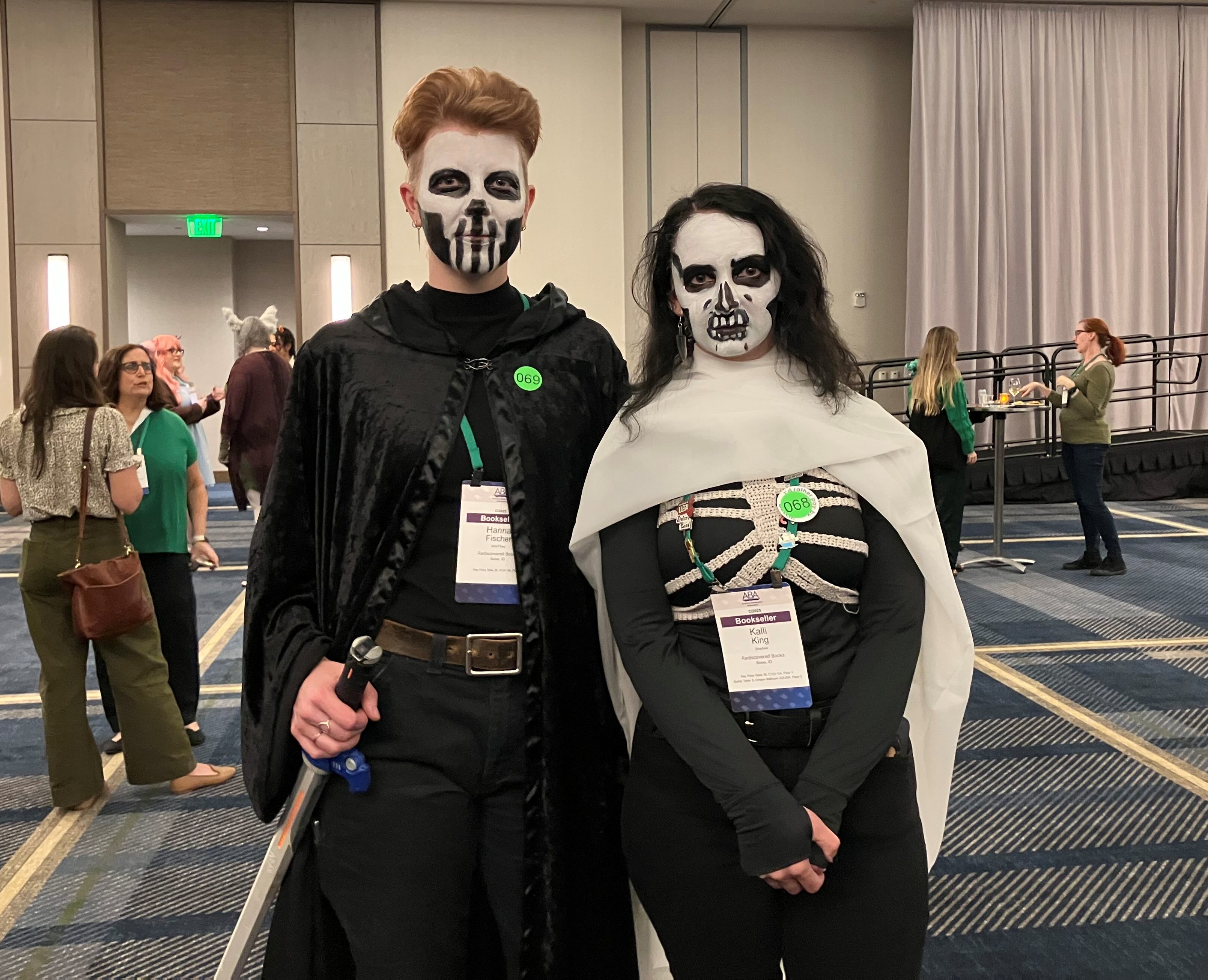 Hanna Fischer and Kalli King from Rediscovered Books, Boise, Idaho, were absolute perfection as Gideon the Ninth and Harrow the Ninth (by Tamsyn Muir).
Hanna Fischer and Kalli King from Rediscovered Books, Boise, Idaho, were absolute perfection as Gideon the Ninth and Harrow the Ninth (by Tamsyn Muir).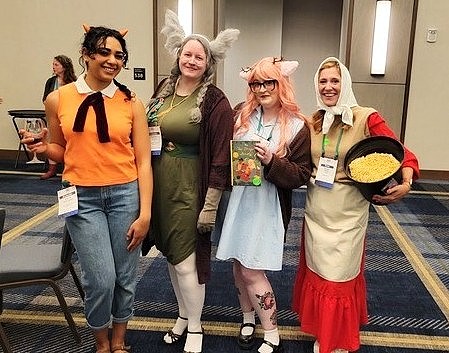 Karina Dominguez, Katelyn Larson, and Miracle Lucketti (all from Ballast Book Company in Bremerton, Wash.) brought to life The Tea Dragon Society (by K. O'Neill), and had the pleasure of meeting Strega Nona, personified by Steph Opitz from Bookshop.org.
Karina Dominguez, Katelyn Larson, and Miracle Lucketti (all from Ballast Book Company in Bremerton, Wash.) brought to life The Tea Dragon Society (by K. O'Neill), and had the pleasure of meeting Strega Nona, personified by Steph Opitz from Bookshop.org.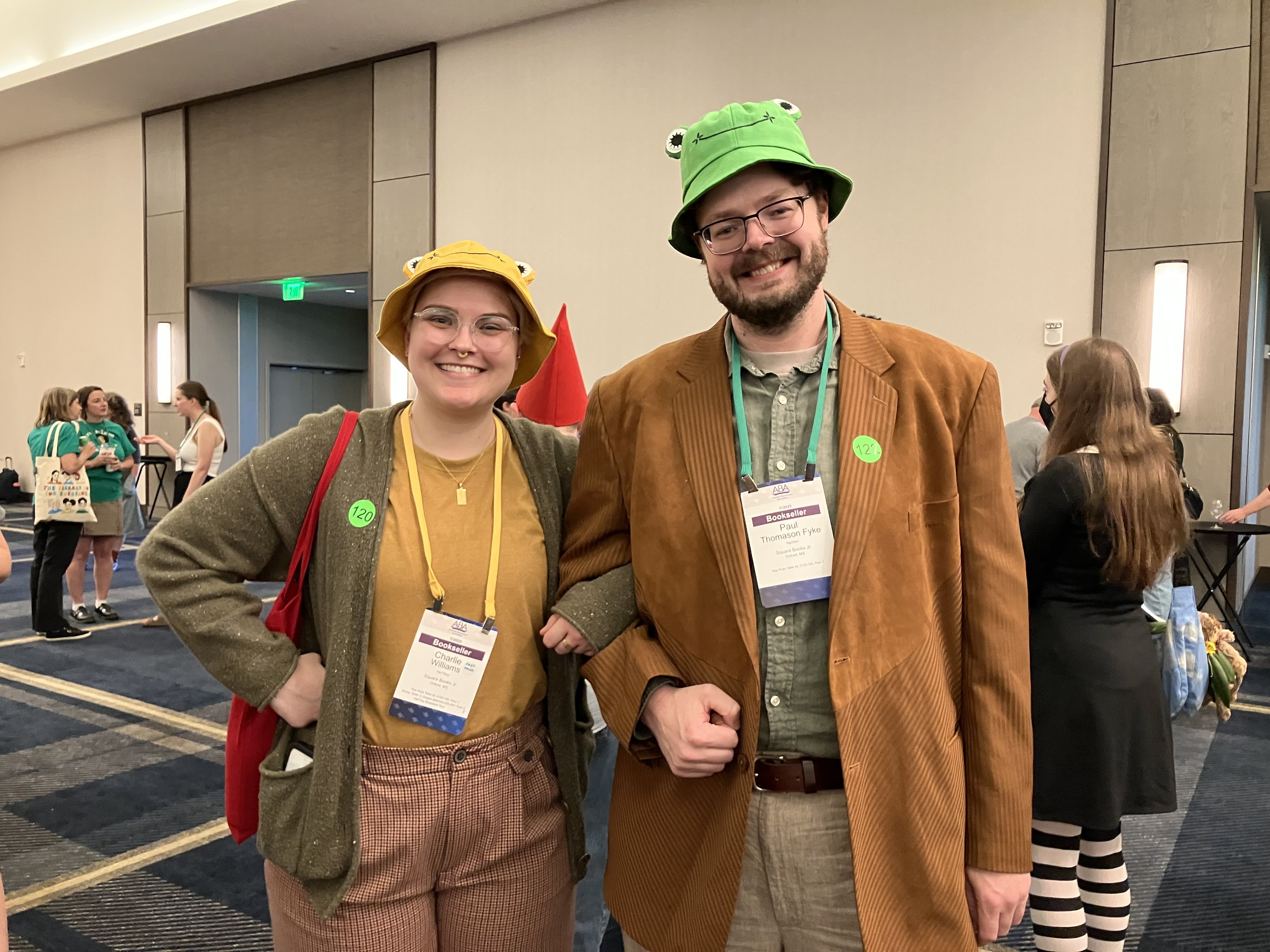 No children's book costume party would be complete without a Frog and Toad, played by Charlie Williams and Paul Thomason-Fyke from Square Books Jr., Oxford, Miss.
No children's book costume party would be complete without a Frog and Toad, played by Charlie Williams and Paul Thomason-Fyke from Square Books Jr., Oxford, Miss.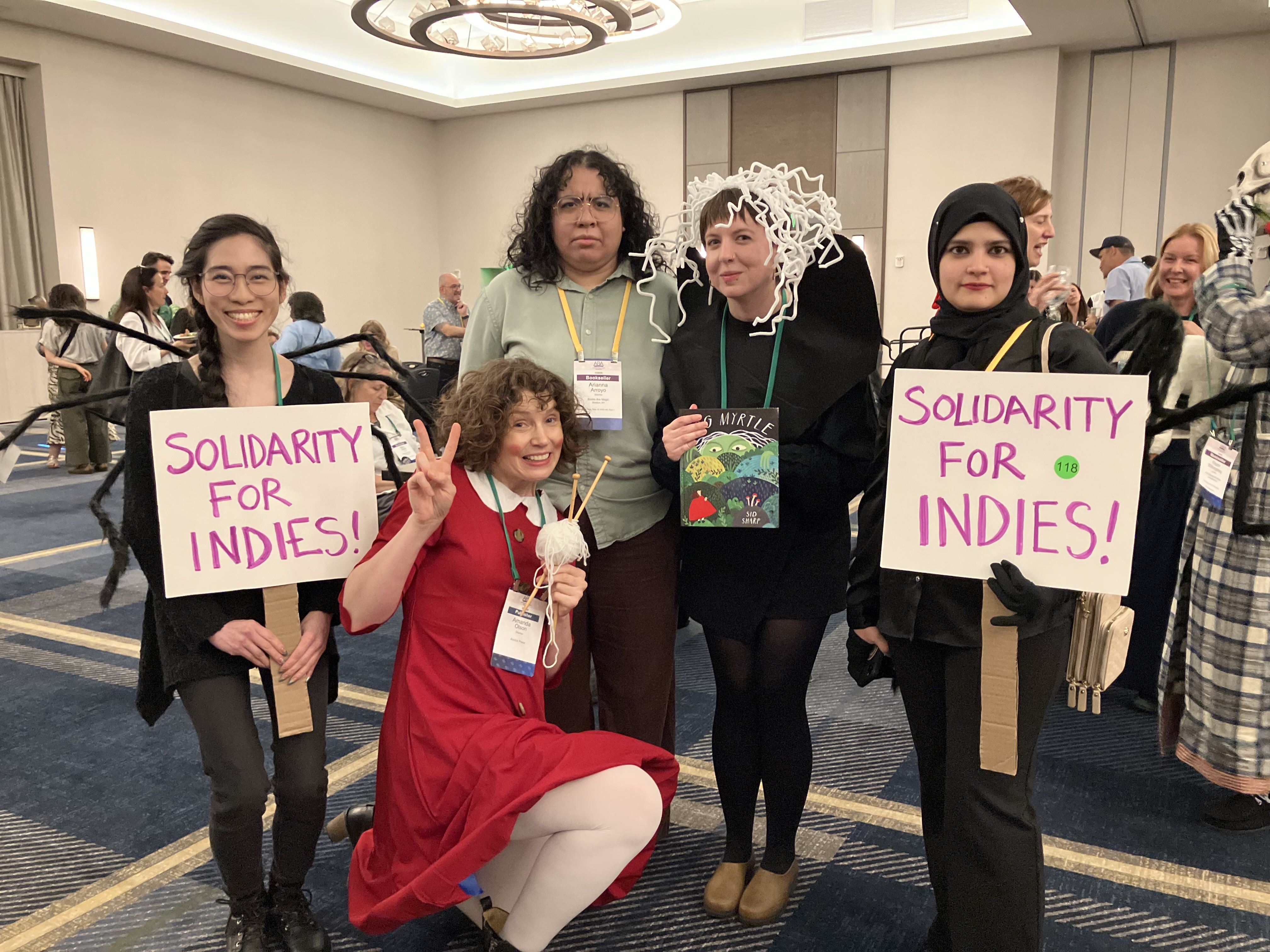 There was a political march on the floor lead by characters from Sid Sharp's Bog Myrtle: (from l.) bookseller JoAnn Yao (Books are Magic, Brooklyn, N.Y.), Amanda Olson (Annick Press), booksellers Arianna Arroyo and Kristina Rivero (Books Are Magic), Zainub Syeda (Annick Press).
There was a political march on the floor lead by characters from Sid Sharp's Bog Myrtle: (from l.) bookseller JoAnn Yao (Books are Magic, Brooklyn, N.Y.), Amanda Olson (Annick Press), booksellers Arianna Arroyo and Kristina Rivero (Books Are Magic), Zainub Syeda (Annick Press).










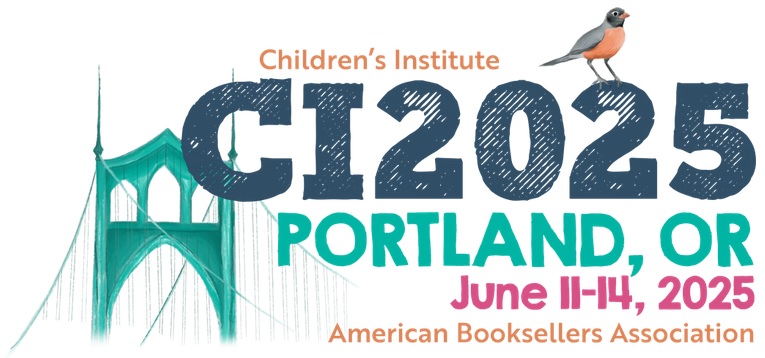 "We gather at a time when the world feels heavy, the headlines are relentless, and the headwinds you face in your businesses are fierce," American Booksellers Association CEO Allison Hill said in opening remarks at the Children's Institute in Portland, Ore., yesterday. "But being here together reminds us of something essential: you are not alone. You are part of something bigger. The work you do as independent booksellers is not just important--it is crucial.
"We gather at a time when the world feels heavy, the headlines are relentless, and the headwinds you face in your businesses are fierce," American Booksellers Association CEO Allison Hill said in opening remarks at the Children's Institute in Portland, Ore., yesterday. "But being here together reminds us of something essential: you are not alone. You are part of something bigger. The work you do as independent booksellers is not just important--it is crucial.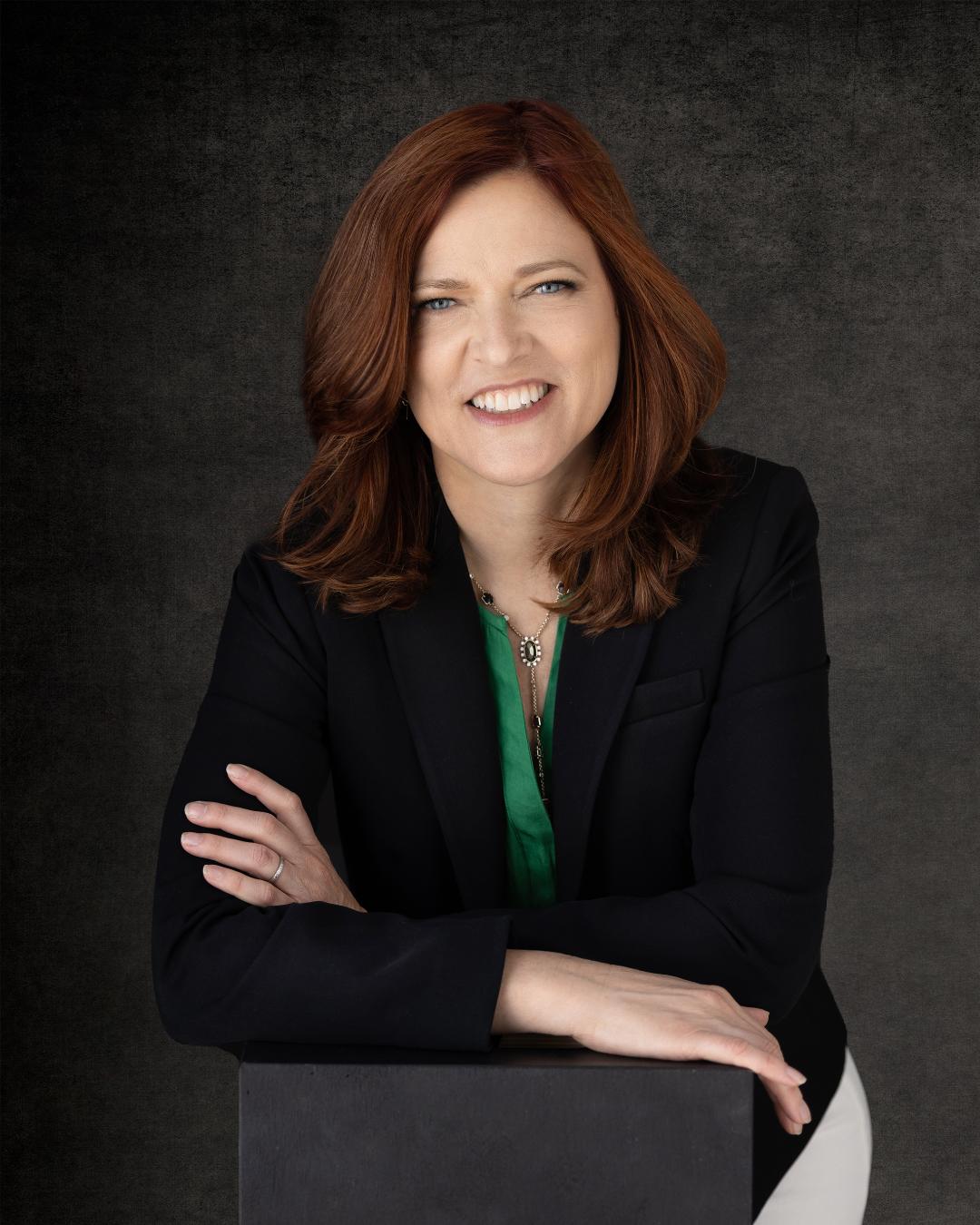

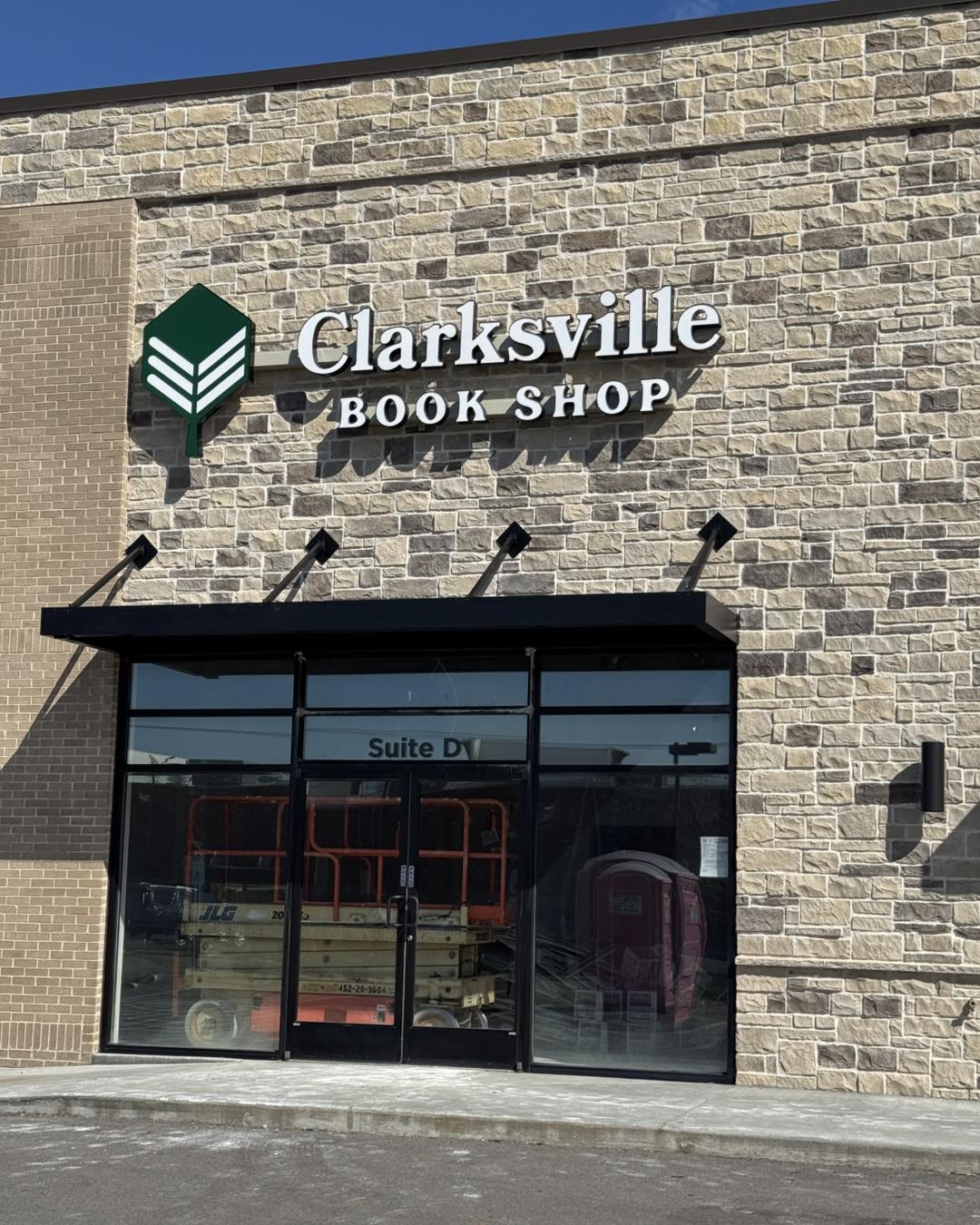 The dust was foam from their fire extinguisher "and covered nearly everything. In addition, the owners found drinks and tools thrown across their business and a giant hole in the wall," WKRN noted.
The dust was foam from their fire extinguisher "and covered nearly everything. In addition, the owners found drinks and tools thrown across their business and a giant hole in the wall," WKRN noted.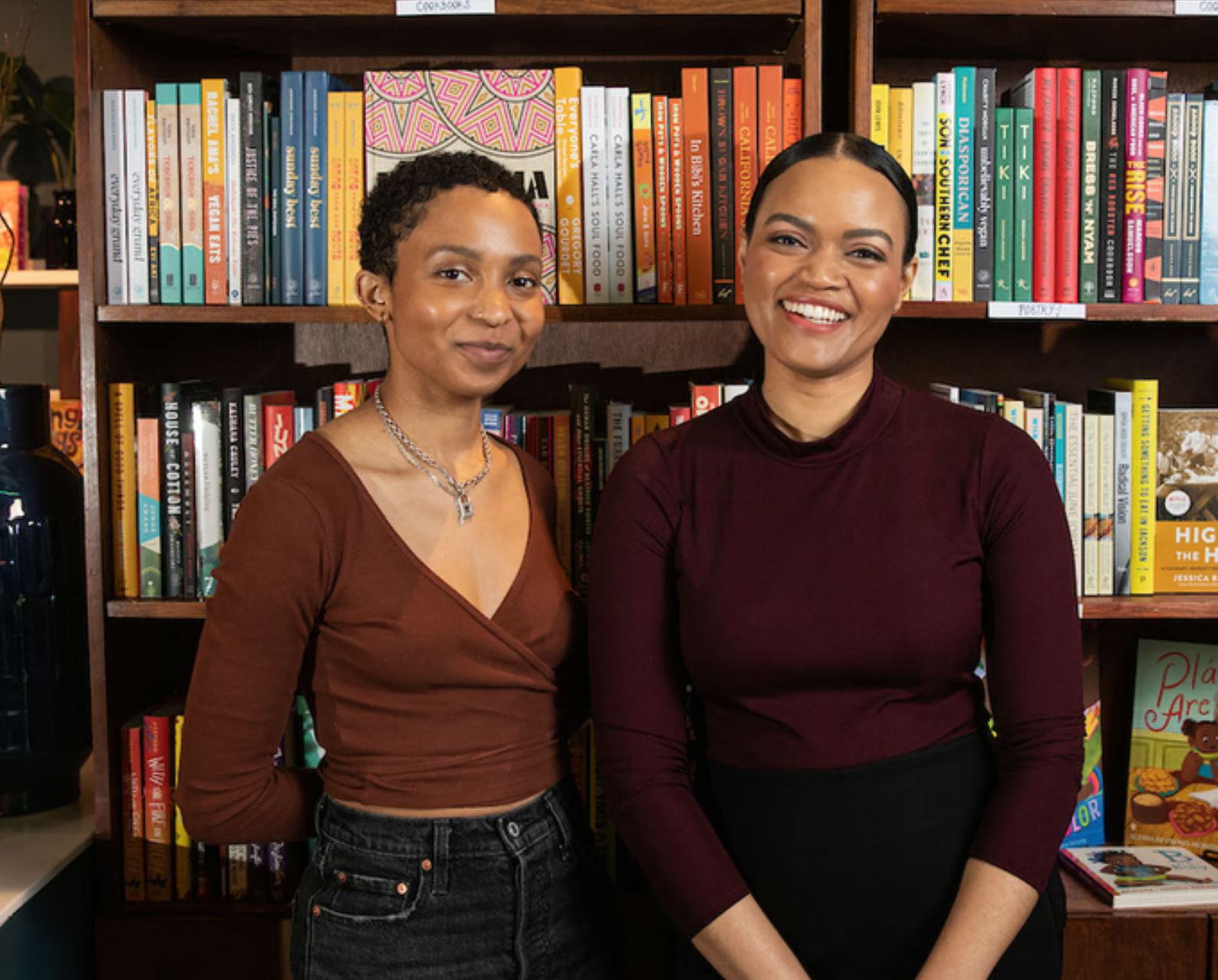
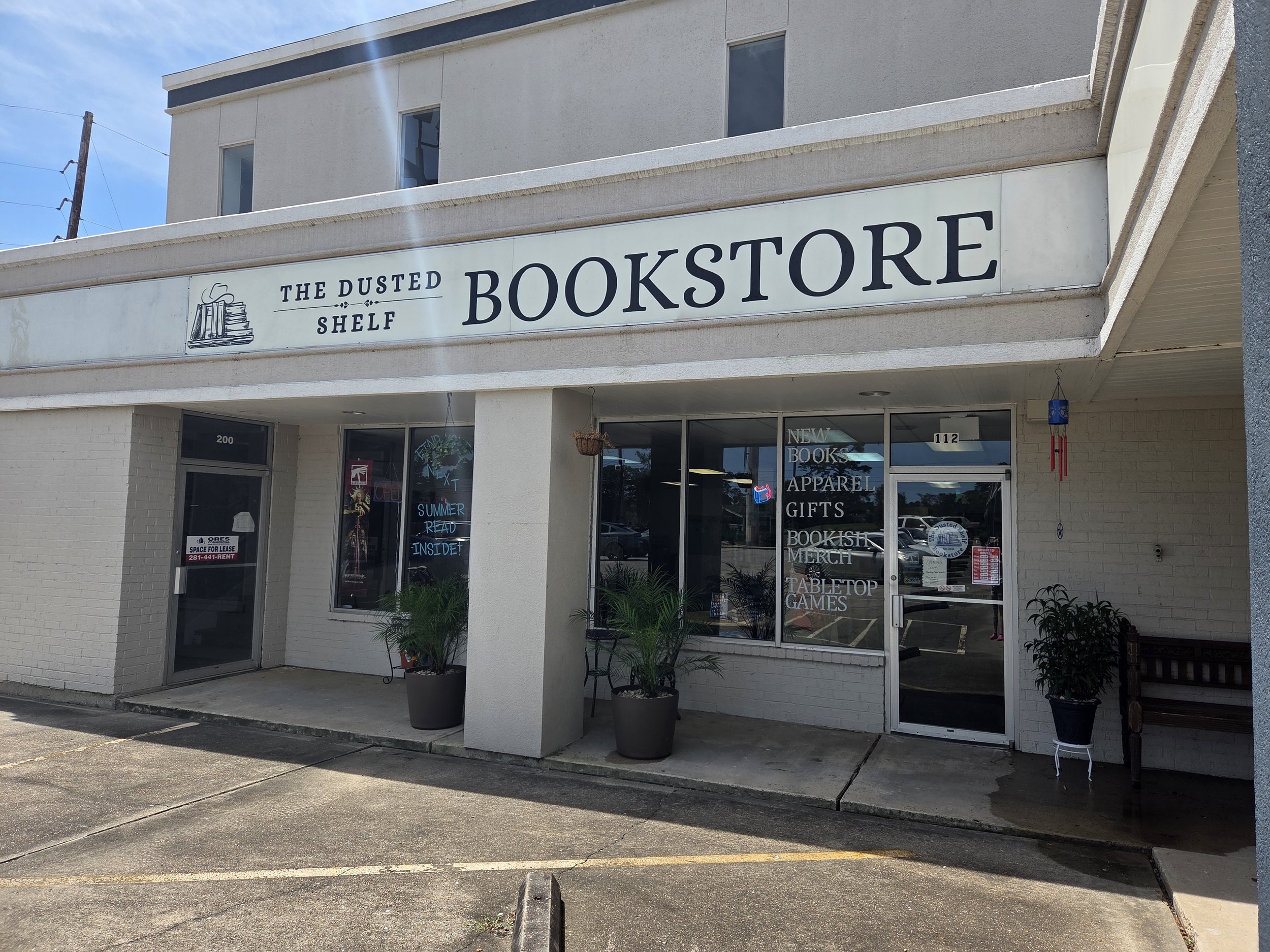 The Dusted Shelf Bookstore
The Dusted Shelf Bookstore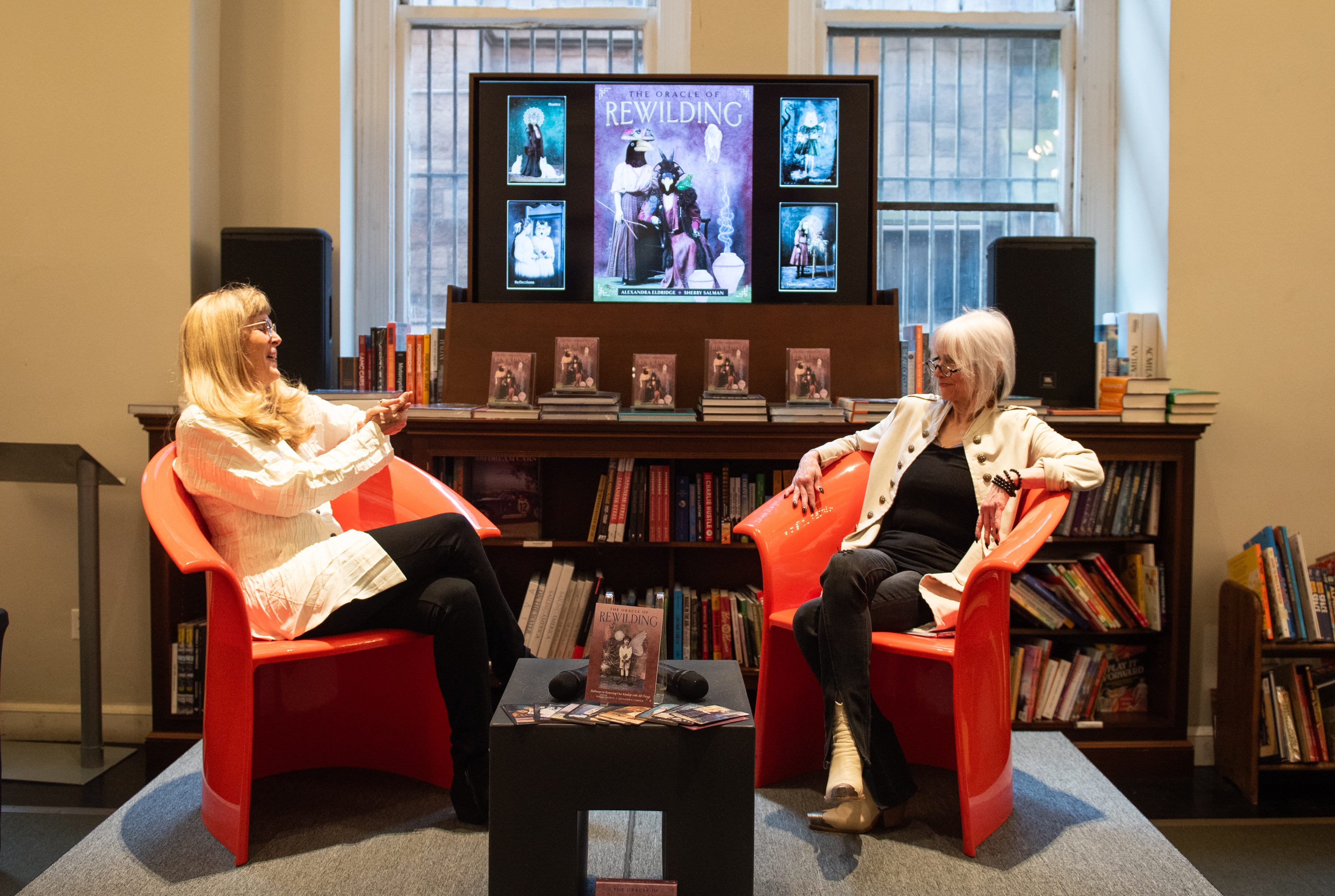 At the
At the 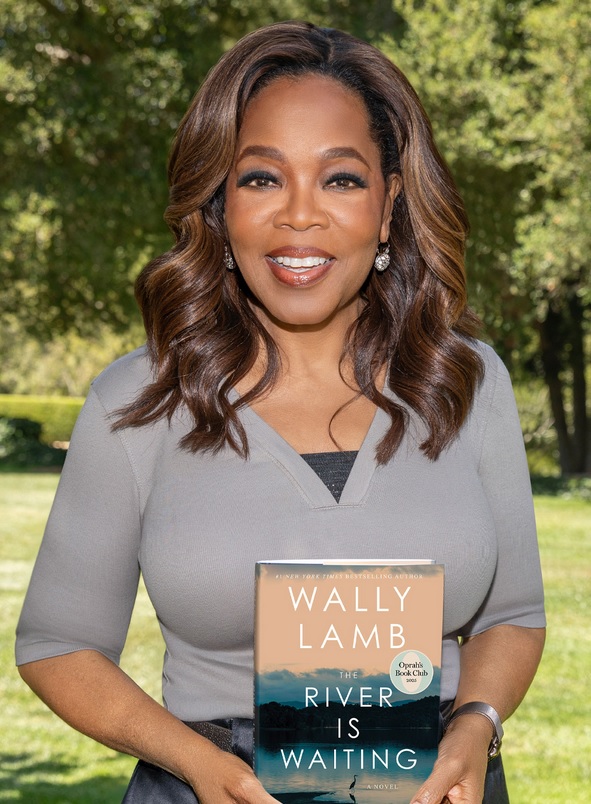 Oprah Winfrey has chosen The River Is Waiting by Wally Lamb (Marysue Rucci/S&S) as the June
Oprah Winfrey has chosen The River Is Waiting by Wally Lamb (Marysue Rucci/S&S) as the June 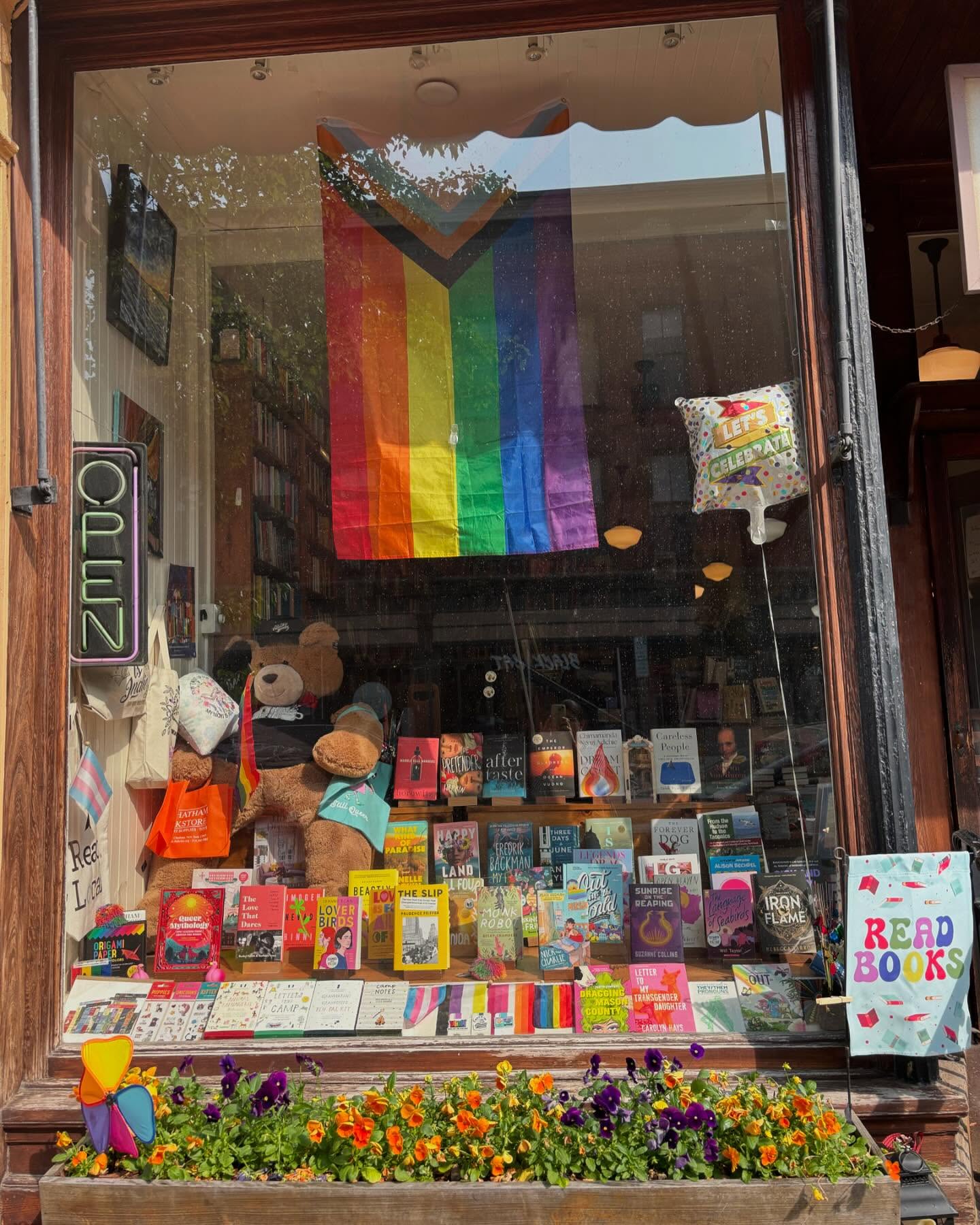

 Book you've bought for the cover:
Book you've bought for the cover: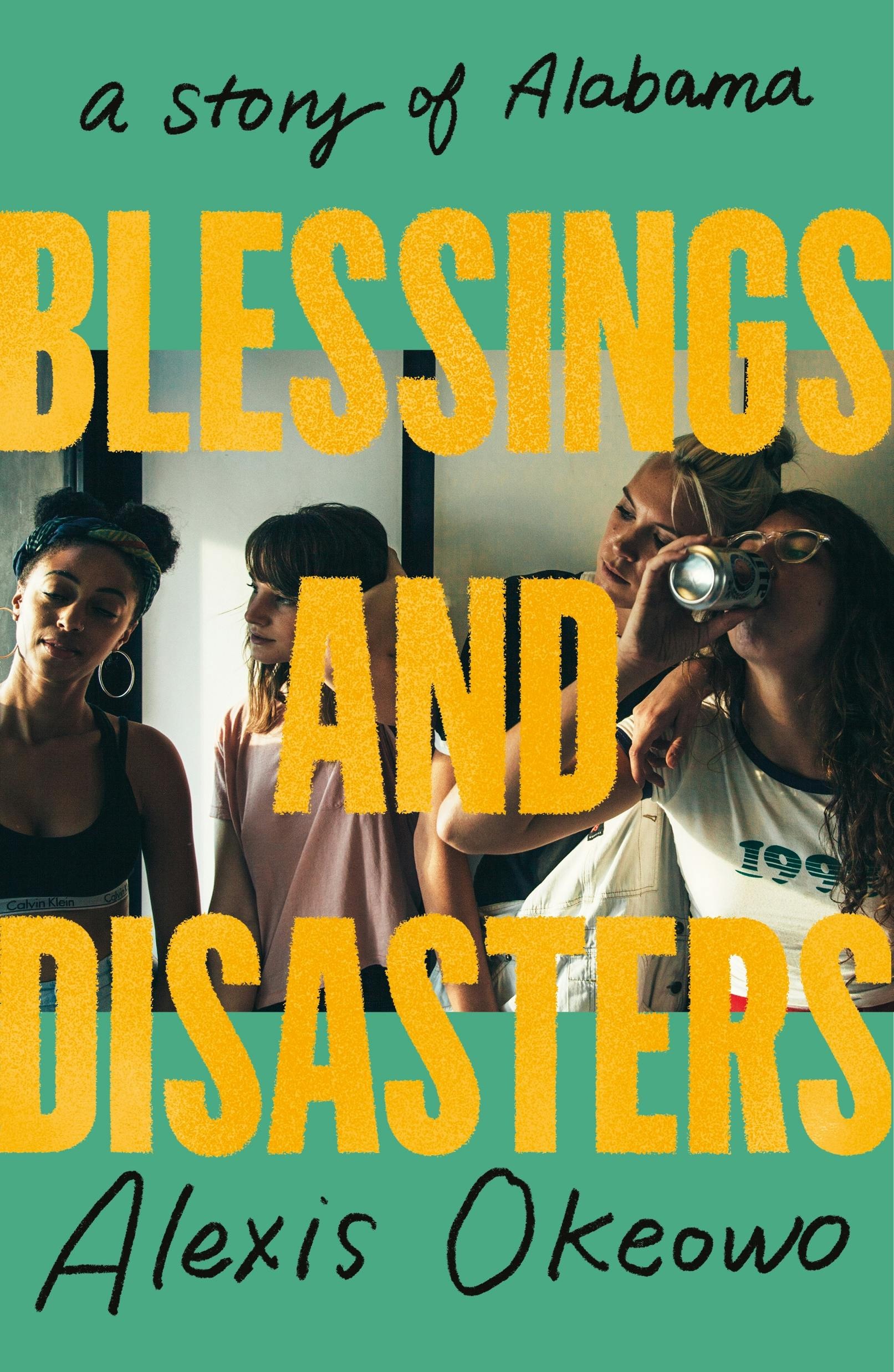 Journalist Alexis Okeowo's insightful second book, Blessings and Disasters, examines the complicated history of Alabama through a mixture of history, reporting, and personal reflections on her experience growing up in Montgomery. "In Alabama, I learned how to speak my mind and make my way by force," Okeowo writes. She explores the intersections of the state's environmental, social, and political histories: its lush and fertile climate, the enduring legacies of colonialism and slavery, the close-knit (sometimes exclusionary) nature of its communities (religious and otherwise), and the wide gaps between stereotypes and reality. As she delves into Alabama's contrasts and contradictions, Okeowo (A Moonless, Starless Sky) shares her love for--and sharp criticism of--her home state.
Journalist Alexis Okeowo's insightful second book, Blessings and Disasters, examines the complicated history of Alabama through a mixture of history, reporting, and personal reflections on her experience growing up in Montgomery. "In Alabama, I learned how to speak my mind and make my way by force," Okeowo writes. She explores the intersections of the state's environmental, social, and political histories: its lush and fertile climate, the enduring legacies of colonialism and slavery, the close-knit (sometimes exclusionary) nature of its communities (religious and otherwise), and the wide gaps between stereotypes and reality. As she delves into Alabama's contrasts and contradictions, Okeowo (A Moonless, Starless Sky) shares her love for--and sharp criticism of--her home state.